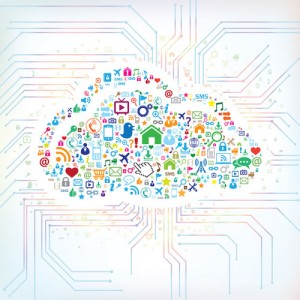Blog

The Most Recent Data Breaches and Their Consequences
Big data breaches have been making headlines more and more frequently. It was announced last week that the computer systems at the U.S. Office of Personnel Management had been breached. This is the second computer break-in in the past year for the agency. An estimated four million current and former federal employee records may have been compromised.
The Most Recent Data Breaches and Their Consequences
Big data breaches have been making headlines more and more frequently. It was announced last week that the computer systems at the U.S. Office of Personnel Management had been breached. This is the second computer break-in in the past year for the agency. An estimated four million current and former federal employee records may have been compromised.
Moving to the Cloud: The Advantages
According to the International Data Corporation (IDC), total public IT Cloud services (SaaS, PaaS, and IaaS) spending will reach $127 billion in 2018. Compared to the 4.1% compound annual growth rate the IT market will experience from 2013-2018, the public Cloud will grow at a 22.8% compound annual growth rate. That’s five and a half times more than the total IT market spending!

Moving to the Cloud: The Advantages
According to the International Data Corporation (IDC), total public IT Cloud services (SaaS, PaaS, and IaaS) spending will reach $127 billion in 2018. Compared to the 4.1% compound annual growth rate the IT market will experience from 2013-2018, the public Cloud will grow at a 22.8% compound annual growth rate. That’s five and a half times more than the total IT market spending!
Moving to the Cloud: The Advantages
According to the International Data Corporation (IDC), total public IT Cloud services (SaaS, PaaS, and IaaS) spending will reach $127 billion in 2018. Compared to the 4.1% compound annual growth rate the IT market will experience from 2013-2018, the public Cloud will grow at a 22.8% compound annual growth rate. That’s five and a half times more than the total IT market spending!
Protect Your Organization from Ransomware
It’s a moment every business owner dreads. A message appears on your organization’s computer screen alerting you that your files have been encrypted and the only way to access them is by paying a ransom. Security threats to computers and mobile phones have grown more sophisticated around the globe in the past few years.

Protect Your Organization from Ransomware
It’s a moment every business owner dreads. A message appears on your organization’s computer screen alerting you that your files have been encrypted and the only way to access them is by paying a ransom. Security threats to computers and mobile phones have grown more sophisticated around the globe in the past few years.
Protect Your Organization from Ransomware
It’s a moment every business owner dreads. A message appears on your organization’s computer screen alerting you that your files have been encrypted and the only way to access them is by paying a ransom. Security threats to computers and mobile phones have grown more sophisticated around the globe in the past few years.

The Cloud: The 3rd Platform of Computing
Around 2008, the IT industry started to experience a massive shift in traditional computing. The International Data Corporation (IDC) began referring to this change as the “3rd platform.” The 3rd platform is built on the four technology pillars for innovation and growth: Cloud, mobile, big data, and social technologies.
The Cloud: The 3rd Platform of Computing
Around 2008, the IT industry started to experience a massive shift in traditional computing. The International Data Corporation (IDC) began referring to this change as the “3rd platform.” The 3rd platform is built on the four technology pillars for innovation and growth: Cloud, mobile, big data, and social technologies.
